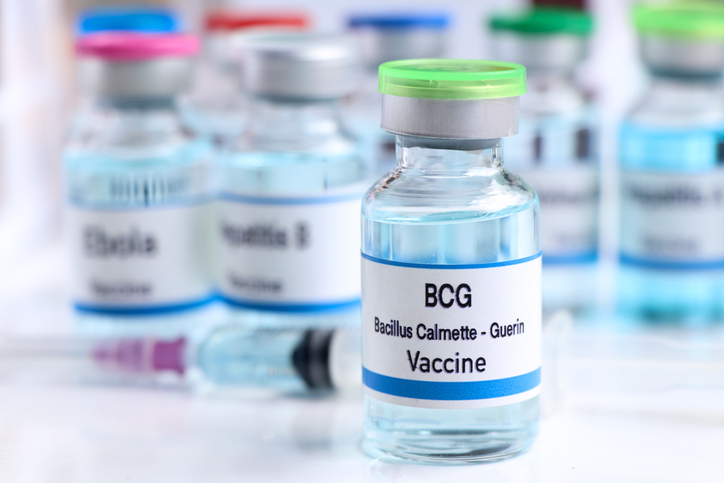How can a tuberculosis vaccine also treat cancer—and potentially make other immunotherapies more effective? That’s the question researchers at Memorial Sloan Kettering Cancer Center (MSK) and Weill Cornell Medicine are helping answer with new insights into Bacillus Calmette-Guérin (BCG), a live attenuated strain of Mycobacterium bovis developed in 1921 as the first—and still only—vaccine against tuberculosis.
Decades later, BCG was repurposed as a cancer therapy and approved by the FDA in the 1980s as the first cancer immunotherapy. It remains a standard treatment for early-stage bladder cancer, administered directly into the bladder via catheter. Used for decades, BCG has long been assumed to act locally. But new research shows it may reprogram immune function at the source: the bone marrow.
In a study published in Cancer Cell titled “Microbial cancer immunotherapy reprograms hematopoiesis to enhance myeloid-driven anti-tumor immunity,” researchers demonstrated that BCG travels beyond the bladder and reprograms hematopoietic stem and progenitor cells (HSPCs), reshaping how the body produces immune cells. These reprogrammed HSPCs generate monocytes, neutrophils, and dendritic cells with enhanced antigen presentation and inflammatory activity, ultimately strengthening T cell responses and expanding the scope of anti-tumor immunity.
“BCG therapy has been one of the most successful immunotherapies for cancer,” said Steven Josefowicz, PhD, an associate professor of pathology and laboratory medicine at Weill Cornell Medicine and co-senior author of the study. “And now it’s clear that it enhances the innate immune system’s ability to fight cancer.”
This insight may help explain BCG’s long-standing success—and as researchers begin to harness this form of innate immune training, it could open new avenues to strengthen immunotherapy from within.
To confirm that this reprogramming also occurs in humans, the team turned to Progenitor Input Enrichment single-cell sequencing (PIE-seq)—a high-resolution technique developed by the Josefowicz Lab. Unlike traditional methods requiring bone marrow biopsies, PIE-seq analyzes rare hematopoietic progenitor cells from a simple blood draw. This allowed researchers to track how BCG treatment affects early immune cell development in bladder cancer patients.
By comparing gene expression in HSPCs before and after BCG treatment, the researchers found substantial transcriptional changes consistent with innate immune training. These shifts mirror what’s seen in mouse models, further supporting the idea that BCG reprograms systemic immunity, not just local responses in the bladder.
In mice, combining BCG with checkpoint inhibitors significantly improved tumor control and extended survival, pointing to the potential for therapeutic synergy. While checkpoint inhibitors act on the adaptive immune system, releasing the “brakes” on T cells, BCG appears to condition the innate immune system to provide better instruction and support to those T cells.
“…this has broad implications for immunotherapy more generally,” Josefowicz said. “We now know that this reprogramming of immune cells that happens in the bone marrow, that enhances innate immunity responses, can be a strategy to enhance the effects of existing immunotherapies.”
The study continues MSK’s legacy in BCG and cancer immunology. In 1959, MSK scientists Lloyd Old, MD, and colleagues published the first study showing that BCG could provoke anti-tumor responses in mice—a discovery that helped launch the modern era of tumor immunology. With this latest research, a century-old vaccine is again at the forefront of immune-based cancer treatments.



